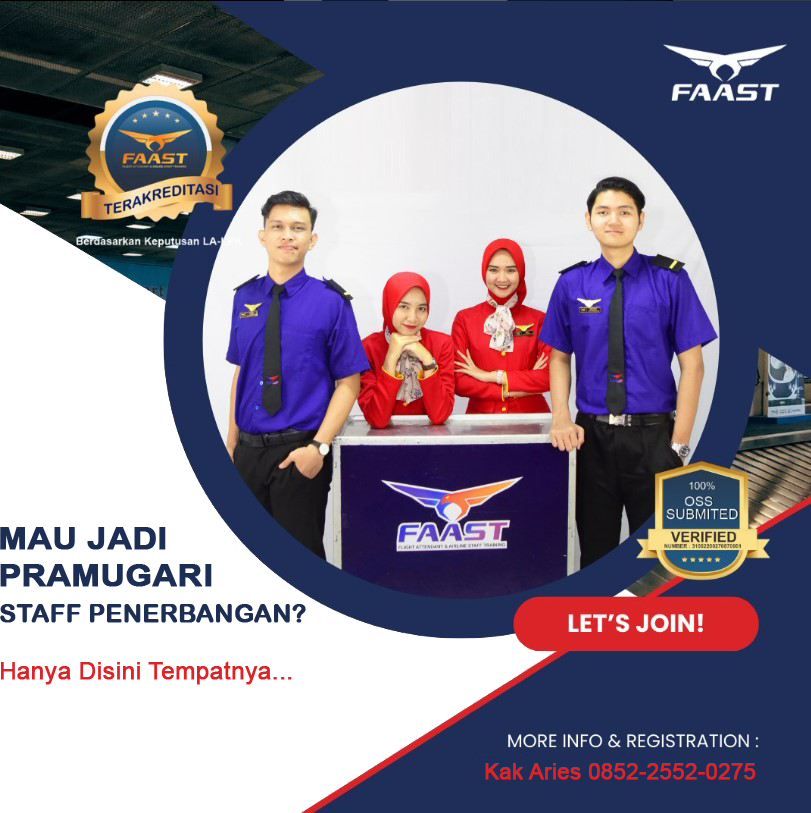Past accidents or injuries, including fractures, is not always an absolute barrier to becoming a flight attendant. The qualifications to become a flight attendant are more focused on ability, physical health, and mental readiness from past injury history.
However, The final decision on whether someone who has had a broken bone can become a flight attendant usually depends on several factors, including:
- Physical Health: It is important for prospective flight attendants to have good physical health and be able to carry out flight attendant duties that require high mobility and stamina.. If the fracture does not affect a person's physical ability to carry out these tasks, most likely won't be a problem.
- Mobility Capabilities: Flight attendants must be able to move freely throughout the plane, including in narrow hallways and in emergency situations. If the fracture limits a person's ability to move freely, then that could be a consideration.
- Complete Medical History: Aspiring flight attendants usually have to undergo a thorough medical examination as part of the recruitment process. A complete medical history will be assessed by the airline's doctor to determine whether an individual meets established health standards.
- Psychological Abilities: Apart from physical health, Psychological abilities are also important in the flight attendant profession. Prospective flight attendants must be able to endure pressure, handle emergency situations calmly, and provide friendly customer service.
Past accidents or injuries, including fractures, is not always an absolute barrier to becoming a flight attendant. The qualifications to become a flight attendant are more focused on ability, physical health, and mental readiness from past injury history.

However, The final decision on whether someone who has had a broken bone can become a flight attendant usually depends on several factors, including:
- Physical Health: It is important for prospective flight attendants to have good physical health and be able to carry out flight attendant duties that require high mobility and stamina.. If the fracture does not affect a person's physical ability to carry out these tasks, most likely won't be a problem.
- Mobility Capabilities: Flight attendants must be able to move freely throughout the plane, including in narrow hallways and in emergency situations. If the fracture limits a person's ability to move freely, then that could be a consideration.
- Complete Medical History: Aspiring flight attendants usually have to undergo a thorough medical examination as part of the recruitment process. A complete medical history will be assessed by the airline's doctor to determine whether an individual meets established health standards.
- Psychological Abilities: Apart from physical health, Psychological abilities are also important in the flight attendant profession. Prospective flight attendants must be able to endure pressure, handle emergency situations calmly, and provide friendly customer service.
If the fracture has healed completely and no longer affects a person's physical health and mobility ability, and if the doctor assesses that the person meets the established health standards, then most likely they still have a chance to become a flight attendant.
The profession of flight attendant has long been one of the few jobs that many people admire and desire. Along with the rapid development of the aviation industry, The image of flight attendants has undergone a significant change from just a glamorous figure in the aircraft cabin to an important role in safety and customer service. Nevertheless, Many people still wonder what medical history is, like a broken bone, can be a barrier for someone to become a flight attendant. Let's examine it further.
First of all, It's important to understand that the flight attendant profession requires a series of qualifications that go beyond just physical appearance. A person who dreams of becoming a flight attendant must meet strict standards in terms of physical health, mental readiness, communication skills, and multitasking skills. Therefore, The decision to accept or reject a prospective flight attendant who has experienced a broken bone must be seen in the context of each airline's specific needs and requirements..
When discussing whether someone who has had a broken bone can become a flight attendant, there are several factors to consider. First of all, it is important to understand the nature of the injury. Fractures can range from minor injuries to more serious ones, depending on location, severity level, and how well healing occurs. If the fracture has healed completely and no longer affects a person's physical health, then most likely the injury will not be a problem in considering them for flight attendants.
However, if the fracture causes permanent damage or limits a person's ability to move freely, then it can be a serious consideration in the recruitment process. As a flight attendant, a person is expected to have good mobility abilities, including walking, running, and work in limited space conditions. Therefore, if the fracture results in significant physical limitations, airlines may consider it an obstacle to becoming a flight attendant.
Besides that, it is important to consider the health requirements set by each airline. Usually, Aspiring flight attendants will undergo a thorough medical examination as part of the recruitment process. The airline doctor will assess the prospective flight attendant's complete medical history, including past injury history, to determine whether they meet established health standards. If the fracture does not affect physical abilities and overall health, then most likely it will not be a barrier in the recruitment process.
However, regardless of medical factors, Other aspects of a person's ability to become a flight attendant also need to be considered. Psychological abilities, including the ability to cope with stress, handle emergency situations calmly, and provide friendly customer service, is also very important in this profession. Therefore, Candidates for flight attendants need to demonstrate that they have sufficient mental readiness to undertake the tasks that may arise in their daily work.
Besides that, It is also important to remember that the final decision remains with the airline concerned. Each airline has different recruitment policies and standards, and the decision to accept or reject a prospective flight attendant may vary depending on the airline's needs and requirements.
For those of you who are still unsure about the explanation above, then you can contact the flight attendant school registration committee for further consultation. Cp Kak Aries 085225520275




























Leave a Reply